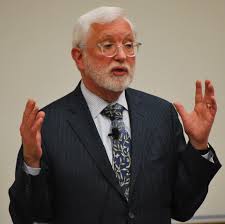Insider trading – everyone seems to know what it is and isn’t – especially if you’ve seen the Oliver Stone movie Wall Street. But it seems Congress and the judiciary might need some help and a clearer definition of the widely used term, according to one critic.

Much like the phrase “high-frequency trading,” which also has yet to be formerly defined by regulators for the purposes of clarity and regulation, insider trading and what exactly constitutes that act have remained a grey area – until now. Earlier this week Reuters reported that U.S. District Judge Jed Rakoff of Manhattan openly called on Congress to specify when it is illegal to trade on confidential information.
Rakoff, a widely known critic of the equity markets and Securities and Exchange Commission, issued an opinion permitting the SEC to move forward with a civil case against two stockbrokers, Daryl Payton and Benjamin Durant, accused of illegal trading in advance of a 2009 IBM deal. This statement by Rakoff comes after federal prosecutors in Manhattan dropped criminal charges against the two men after the 2nd U.S. Circuit Court of Appeals issued its decision last December in U.S. v. Newman, which made it harder to bring a criminal case against defendants who received second- or third-hand tips. Rakoff found the SEC met the looser standards for civil cases.
Furthermore, in his opinion Rakoff noted that when courts are forced to develop insider trading law on a case-by-case basis, “difficulties” ensue. If defendants are facing prison, judges are obliged to define insider trading narrowly, he said, yet in SEC cases, judges give more leeway because it’s important to deter cheaters.
“The tensions thereby created cannot always be resolved in satisfactory fashion – thus reinforcing the need for Congressional action,” Rakoff wrote.
Rakoff’s commentary came amid continued scrutiny of the equity markets and whether issues of market fairness should be formerly addressed – by regulators and market observers. There is no formal insider trading law on the books – and regulators and the courts have looked to other laws, such as anti-fraud and ethics to decide whether a person has committed wrongdoing.
Reuters pointed out that two justices of the U.S. Supreme Court, meanwhile, are uneasy about deferring to the SEC to define criminal insider trading. Last November, Justices Antonin Scalia and Clarence Thomas said in an unusual statement accompanying the court’s order list that it is up to Congress, not executive branch agencies, to decide what constitutes a federal crime. The Supreme Court decided not to review the case that prompted the statement by Scalia and Thomas, hedge fund executive Douglas Whitman’s appeal of his 2012 insider trading conviction, and has since declined to hear another appeal that raised questions about the SEC’s authority to define insider trading. Nevertheless, the statement by Scalia and Thomas, like Rakoff’s opinion Monday, reflects dissatisfaction with the statutory vacuum at the core of insider trading prosecution.




